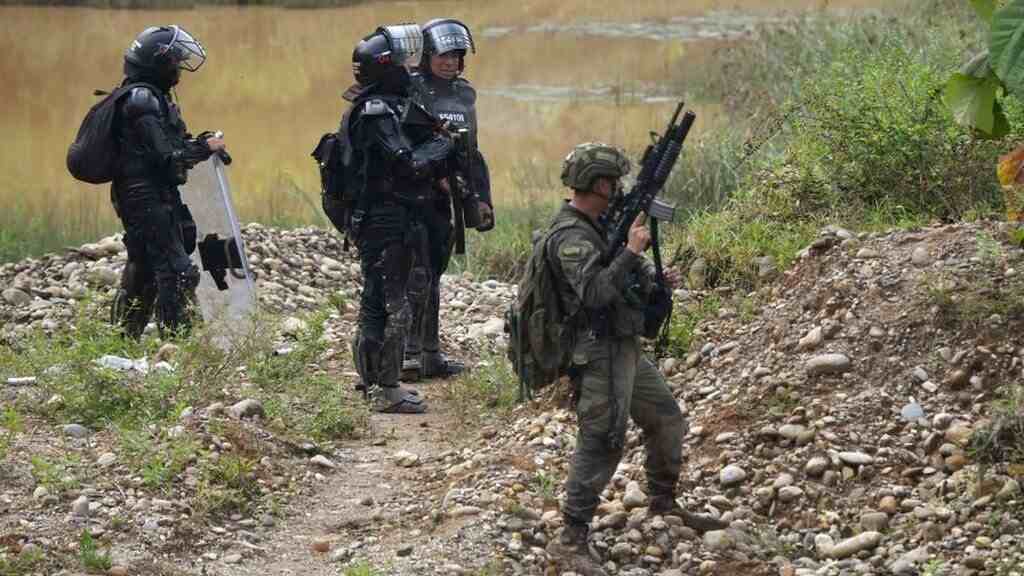Colombian authorities have arrested more than 200 suspected members of the Gulf Clan, the nation’s most notorious drug cartel, accused of paying thousands of dollars for the murder of police officers. The arrests come amid a surge in cartel violence that has claimed the lives of 24 security personnel in the past month alone.
The criminal network, rooted in the paramilitary groups of the 1990s, has shifted its focus entirely to drug trafficking. Officials say the group orchestrated a brutal campaign to eliminate members of the country’s security forces, offering bounties ranging from $2,300 to $3,500 for every murdered officer.
President Gustavo Petro has accused the Gulf Clan of launching a “systematic murder” campaign against the state. The president previously suspended peace talks with the group in 2023 due to its violent tactics. In retaliation, the government escalated its crackdown, capturing 217 members since April 15.
According to Armed Forces Chief Francisco Cubides, security operations also resulted in the deaths of 15 suspected drug traffickers. Authorities seized 6.8 tons of narcotics, 123 firearms, and over 15,000 rounds of ammunition, marking one of the most significant drug raids in recent years.
Cubides described the cartel’s recent attacks as a “desperate response” to their mounting losses against law enforcement, especially in northern and western Colombia where security presence has intensified.
The Gulf Clan, with an estimated 7,500 members, is involved in more than just cocaine trafficking. The group has diversified into illegal gold mining, extortion, and migrant smuggling. Their main income, however, still stems from the global cocaine trade, which they use to fund paramilitary operations.
Interior Minister Armando Benedetti revealed that the cartel offered large cash rewards to incentivize assassinations of police officers. “They paid between 10 and 15 million pesos per dead officer,” he said at a government meeting.
This bounty system is part of what President Petro has described as the cartel’s “pistol plan,” a ruthless initiative aimed at destabilizing the state through fear and targeted killings.
The U.S. recently designated the Gulf Clan as a foreign terrorist organization, following numerous violent incidents. In 2022, the group brought daily life to a halt across dozens of towns in northern Colombia, retaliating against the extradition of their leader to the United States.
Last month, Colombian police, in collaboration with the DEA, neutralized “Chirimoya,” one of the Gulf Clan’s top five commanders, along with eight other members. Despite such victories, violence has escalated in regions once pacified after the 2016 peace deal with the FARC rebels.
Defense Minister Pedro Sanchez recently admitted that Petro’s vision of “total peace” through negotiations has not achieved desired results. On the contrary, the Gulf Clan and other armed groups have grown bolder.









